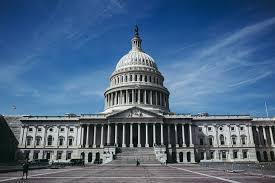What the crypto bill means for bitcoin investors
By;
A new bill listed for introduction in Parliament seeks to bar all private cryptocurrencies in India. It comes nearly a year after the Supreme Court quashed a Reserve Bank of India ban on crypto-related payments. Mint decodes what the bill means for crypto investors.
A new bill listed for introduction in Parliament seeks to bar all private cryptocurrencies in India. It comes nearly a year after the Supreme Court quashed a Reserve Bank of India ban on crypto-related payments. Mint decodes what the bill means for crypto investors.
How does fiat money compare to crypto?
Traditional currency is maintained in paper or metal form, such as notes and coins, or in electronic form in account entries made by banks. Cryptocurrency is also a form of electronic money. The difference is that the record of cryptocurrency is maintained simultaneously by thousands of computers instead of a centralized entity such as a bank. Thus, the record of cryptocurrency can’t be tampered with by any person or authority. Cryptocurrencies such as bitcoin also tend to have limited supply. This has raised their price in the face of large money printing by central banks around the world following the covid-19 pandemic.
What sets blockchain apart from crypto?
Blockchain is a technological system that is used for maintaining records in a manner that they cannot be easily tampered with. The system can be applied to any type of record like educational certificates, land, or as in case of cryptocurrency, money. Governments globally have taken a positive view of blockchain and a negative view of cryptocurrency. This also appears to be the view taken in the crypto bill to be tabled in the Parliament. However, experts argue that the two cannot be separated. They say blockchain is powered by cryptocurrency and cannot function effectively without the latter.

Does India consider crypto as a legitimate currency?
In 2018, the Reserve Bank of India banned banks from processing payments linked to cryptocurrency. This ban was overturned by the Supreme Court in March 2020 as violative of the freedom of business and profession under Article 19(1)(g) of the Constitution. Since then, the cryptocurrency sector has operated in a legal vacuum in India.
What does the govt’s crypto bill propose?
The bill listed by the government, for introduction in the Parliament, seeks to prohibit all private cryptocurrencies and lay the groundwork for an official digital currency. Such official currencies are being contemplated by several central banks around the world, including China. Cryptocurrency professionals have argued that cryptocurrencies such as bitcoin and ether operate on public ledgers and hence cannot be called ‘private’ cryptocurrencies. The detailed provisions of the bill have not yet been released to the public.
Should you sell your cryptocurrency?
The detailed legislation will offer more clarity on whether you should sell your cryptocurrency. The bill, however, mentions that certain exceptions may be made to preserve the underlying tech of cryptos (blockchain). Not all bills introduced in the Parliament are passed in the same session. The bill could be referred to a panel or deferred to a later session. Earlier investments in cryptos cannot be criminalized because of Article 20 (1) of the Constitution, which prohibits the state from passing retrospective criminal laws.
Via: Mint

